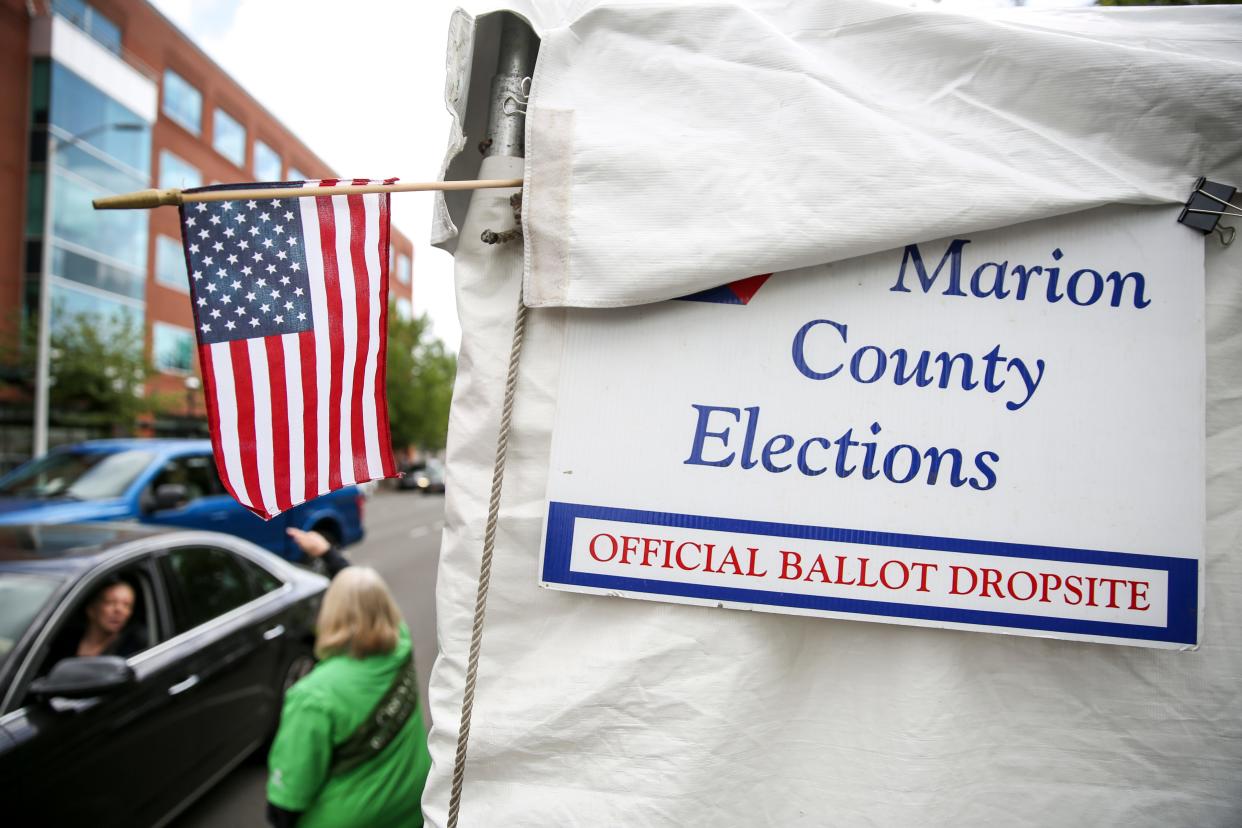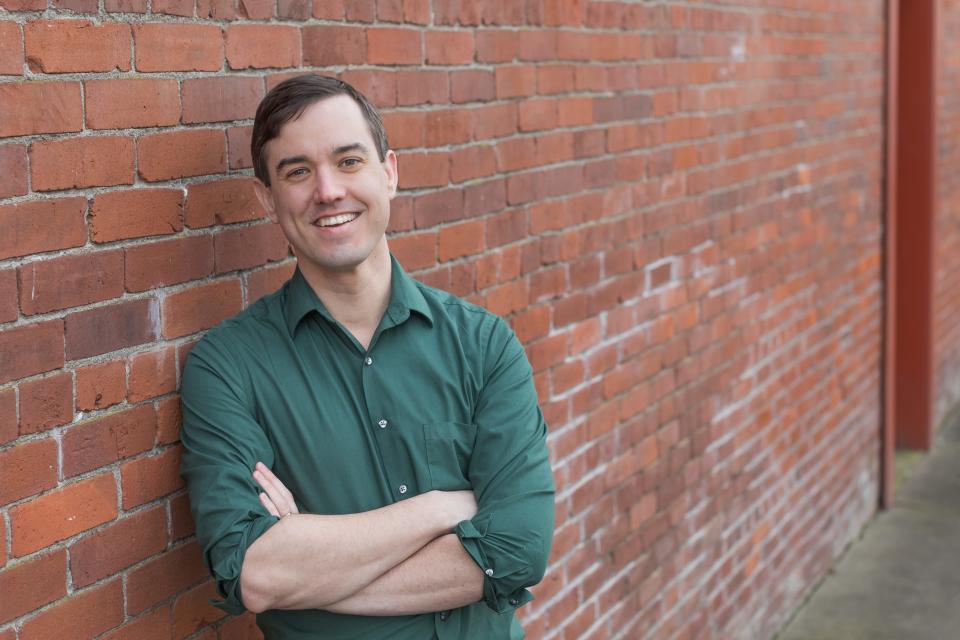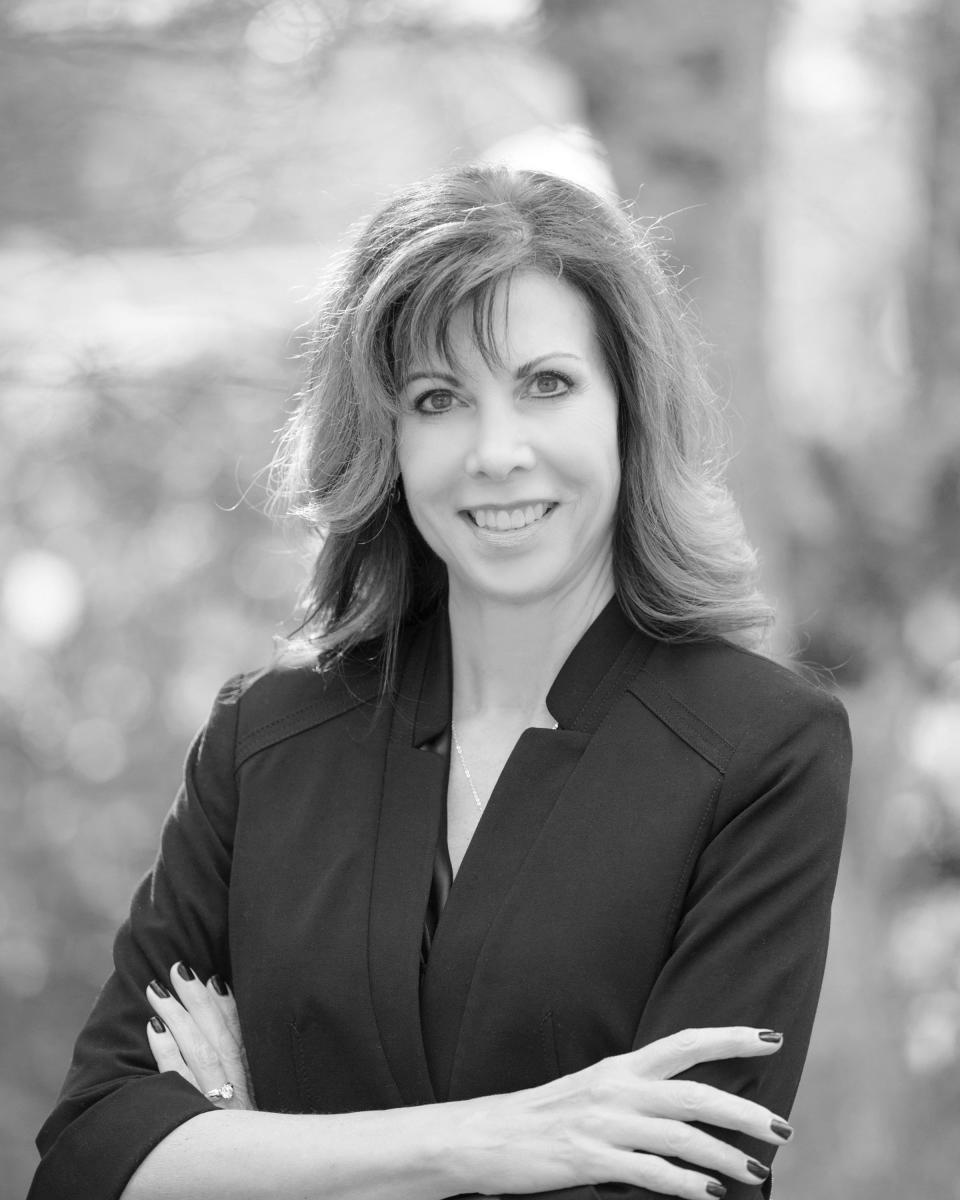9 candidates face off in Democratic primary in new 6th Congressional District

- Oops!Something went wrong.Please try again later.
For the first time in 40 years, Oregon's congressional delegation is expanding.
Voters in Oregon's new 6th Congressional District will get to decide in November who will be the inaugural representative for the area stretching from the Willamette Valley north to the Portland suburbs and west into Polk and Yamhill counties.
But first, they have to decide who's getting to November.
On the Democratic side, nine candidates have filed to run.
Check out: 7 candidates in 6th Congressional District Republican primary
Rep. Teresa Alonso Leon
State Rep. Teresa Alonso Leon is leaning into her roots within the district’s Latino, Indigenous and agricultural communities, drawing both from her family’s background and her experience representing those communities for years.
“I’m doing this in honor of the community who has supported me from the very beginning, who actually got me into politics, because I never saw myself as a politician,” Alonso Leon said. “I want to represent a community who has represented me from the very beginning.”
Alonso Leon and her parents immigrated to Oregon from Mexico when she was 4. With her parents working on farms in the Willamette Valley region, Alonso Leon said, she experienced the hardships still faced by those communities today — hard labor, low wages, lack of basic home necessities and language barriers.
Alonso Leon served on the Woodburn City Council starting in 2013 until she was elected to the Oregon House of Representatives in 2016. She served three terms before running for Congress this year.
Her Oregon House district, coincidentally, falls entirely within the new boundaries of Congressional District 6.
Among her legislative successes, Alonso Leon touts bills that: provided health insurance coverage to 100% of kids regardless of immigration status, required farmworkers receive overtime pay, strengthened Oregon’s immigration sanctuary law and created a statewide paid family and medical leave program.
“I’ve been doing this work for a long time, and I want to continue doing this work,” she said.
Alonso Leon has raised $67,000 as of March 31, with nearly 30% of it coming from donors who contributed $200 or less to her campaign. Of those who donated more than $200, 90% are from Oregon.
Ricky Barajas
The Statesman Journal was unable to reach Ricky Barajas for this article.
According to his campaign website, Barajas is a first-generation Mexican American born in Los Angeles who became politically involved at a young age. He was inspired by former President Barack Obama to run for office. He previously ran for Congress in 2018 and 2020.
He is advocating for additional COVID-19 relief from the federal government, investments in clean energy, tax reform and expansion of the Affordable Care Act.
According to federal campaign finance data, Barajas does not appear to have a political action committee set up for his campaign this cycle.
Carrick Flynn

Carrick Flynn’s candidacy for Congress has made headlines in Oregon and nationwide, in large part due to his financial support.
His campaign has raked in more than $815,000 so far — the most of any candidate who isn’t self-funded — but only 2.5% of that is from Oregon-based donors, according to federal campaign finance data. Additionally, independent political actions committees have spent nearly $7 million in support of his candidacy, with most of that coming from a new cryptocurrency billionaire-backed super PAC.
Flynn said he doesn’t know exactly how he got Protect Our Future PAC’s endorsement, but there is a logic to it: The PAC’s top issue of concern is pandemic preparedness, and that is precisely the subject Flynn has prioritized.
A plan to prevent future pandemics that Flynn said he worked on was on its way to being passed by Congress in the fall, but was cut out near the end of the process. That disappointment directly led to Flynn’s candidacy.
“I can do more to advance it if I am able to get elected," he said.
But Flynn insists he isn’t a one-issue candidate — while pandemic preparedness is time-sensitive, his actual top issue is building a strong economy. Flynn stipulates that having a strong economy would allow the country to fund climate change-related programs and research, as well as create a “floor” for people who experience disaster, like his family did when their home was destroyed in the Vernonia flood of 1996.
And while he hasn’t spent much of his adult life in Oregon — his residences since graduating high school include Kenya, Liberia, India, Malaysia, Ethiopia, England and most recently Washington D.C. — he said he feels a connection to the district base on its “cross sections.”
As Flynn describes it, the district includes logging country, wine country, liberal arts schools, the seat of government and part of Silicon Forest, all areas he knows.
“I have a foundation in understanding their interests and I know how to listen,” he said. “You need to learn when you haven’t lived here and worked here for 50 years.”
Greg Goodwin
The Statesman Journal was unable to reach Greg Goodwin for this article.
Goodwin does not appear to have a campaign website. According to candidate information filed with the Oregon Secretary of State, Goodwin is a 911 operator with the Newberg-Dundee Police Department.
He does not have any previous elected experience, nor has he run for office before in Oregon.
Dr. Kathleen Harder

As a physician, Dr. Kathleen Harder has heard the concerns and problems of Oregonians for 30 years.
She’s witnessed the hard choices many people must make when faced with paying for expensive medications or paying their rising rent. She’s had to discharge people to hotels and just hope they get the care they need.
To her, every issue can be boiled down to a health care conversation, from homelessness to climate change.
“I look at all policies through a health care lens,” she said.
She said that’s how she would approach the job in Congress, too. She is looking to become an advocate for the community, like she is for her patients.
Harder has lived, worked and raised her children all inside Congressional District 6, which she said gives her a clear understanding of the community and its needs. She touts endorsements from Salem-area state representatives and Salem City Council members as indication of her deep ties to the area.
Because of her job, she has daily conversations with Oregonians from across the political spectrum and said she can talk with people from all backgrounds.
She said people need to heal, both from the impacts of the coronavirus pandemic and the tumultuous political atmosphere of the past few years.
“We need to give people hope and rebuild the trust that has been so broken,” she said.
Overall, Harder said that people in the district are tired of inaction, particularly on existential issues like climate change or growing problems like mental health care treatment, which are among her top issues.
Harder's campaign reported she has raised more than $430,000, with 81% from donors within Oregon.
Cody Reynolds
Cody Reynolds has been planning his 2022 congressional campaign for a decade.
Reynolds first ran for Congress in 2012 as a Progressive candidate, coming in third in a general election that Rep. Suzanne Bonamici won. In that race, Reynolds said, Bonamici raised more than $2 million — far more money than Reynolds had to his name at the time.
He ran for Congress the next two cycles — as a Green candidate for the House in 2014 and as an Independent for Senate in 2016 — but knew he would need money to make a serious run in the future.
“You cannot win an election without money, and there are different paths to getting that money,” Reynolds said.
Reynolds’ path was through cryptocurrency. He entered the space in 2012 — he said he saw the potential with cryptocurrencies and got lucky along the way.
He always had the intent of using what he earned to run for office and do so independent of traditional political financing. And he has: As of March 31, Reynolds had loaned his campaign $2 million and contributed an additional $500,000.
Reynolds said he doesn’t want to be beholden to anyone if he were to be elected.
“I don’t care about the traditional gatekeepers. I actually don’t even want their help because then they want something in return,” he said.
Among Reynold’s top issues are addressing the state’s affordable housing crisis, investing in green energy jobs and fixing infrastructure in rural Oregon.
He said government should be in the business of incentivizing and supporting these markets, utilizing tools such as targeted economic opportunity zones, tax incentives and better funding for universities and national laboratories.
Reynolds said he wants to represent the people who don’t have powerbrokers looking out for them — people, like he was in his youth, who are poor or living in depressed areas or have “broken” family situations.
“They’re the people who need a voice,” he said.
Rep. Andrea Salinas
Rep. Andrea Salinas said the biggest difference between her and the other candidates in this race is that while everyone can talk about supporting progressive values, she can talk about the progressive victories she has achieved.
These include increasing the state’s minimum wage, creating a statewide paid family and medical leave program, bolstering Oregon’s abortion rights protections and ensuring farmworkers were eligible for overtime pay.
“The people of this district deserve someone with experience who has a track record of getting things done,” Salinas said.
Salinas is the daughter of a Mexican immigrant father and has served in the Oregon Legislature since 2017. Before joining the Oregon House, she worked as a lobbyist for progressive causes, including on environmental and health care issues, and as a legislative aide on Capitol Hill.
She moved to Oregon in 2006.
Salinas said her knowledge of how Washington, D.C. functions and her expertise moving bills through the legislative process would be of major benefit to the district if she is elected.
“I’m committed to the work because I’ve been doing it,” she said.
Salinas has also received the most high-profile endorsements in the primary. These include sitting state lawmakers (Gov. Kate Brown, Attorney General Ellen Rosenblum, House Speaker Dan Rayfield), labor unions (SEIU Oregon, UFCW Local 555, Oregon Education Association PAC) and national organizations (Latino Victory Fund, Planned Parenthood Action Fund, League of Conservation Voters Action Fund).
Her campaign reported that as of March 31 she has raised more than $520,000 and that nearly 80% of her contributions are from Oregon donors.
Loretta Smith
If elected to Congress, former Multnomah County Commissioner Loretta Smith said, she would focus the job on interacting with the constituents who sent her there.
Based on her two-decade experience in U.S. Sen. Ron Wyden's office, Smith said, 65% of what staffers do is constituent services. That includes helping citizens interface with the federal government, particularly in areas like Social Security or Medicare, she said.
For elected officials, it means lots of office hours and town hall forums, regardless of what's going on in the world.
“You can’t only talk to people when you have good news," she said. "You have to talk with people when they have something they want to tell you."
Those interactions are how her office will know what to devote its energy to, she said.
Smith's top issues follow a common theme: affordability. People are concerned about the prices of groceries and gasoline, as well as health care and housing, she said. Gun violence in Portland is also a concern.
In 2011, Smith became the second Black person to serve as a Multnomah County commissioner. She was in that role for eight years, during which she helped manage a $2 billion budget and oversee a variety of social safety net programs.
Smith said she was able to work within that budget to find money to send to the most vulnerable communities in the county.
“I needed to be a voice for those who are voiceless,” she said.
Smith has raised $237,000 and reported about 74% of it came from within Oregon. She also loaned her campaign $60,000.
Matt West
Intel engineer Matt West believes there need to be more scientists in Congress, and he wants to be one of them.
West’s top issue and the issue that pushed him into the race is climate change. Congress is not addressing this existential threat with the focus and action it deserves, he said, highlighted by the unusual weather events and natural disasters Oregon has faced over the past few years.
“The change is here, it’s now,” West said. “We need to attack it with that level of imminent drive ... because we cannot wait any longer.”
In addition, the coronavirus pandemic further exposed what West called a lack of scientific literacy among those in public office. Whether pushing back against misinformation or intentional disinformation, having people in the public discourse who understand the issue at a deeper level would help, he said.
Moreover, tackling the country’s biggest challenges — from climate change to food scarcity — will be accomplished with solutions rooted in science, he said.
West earned his Ph.D. in 2014 from the University of Texas at Austin in chemical engineering with a focus on fuel cell technology. For the past seven years, he has worked at Intel as a hi-tech manufacturing engineer.
During those years at Intel, West said, he has seen how everyday people can be exploited by the rich and powerful. Pushing back against those forces is one reason West considers himself “the progressive champion” in the race.
West has committed to not taking corporate money during the campaign, saying “too many politicians have a price, and I can’t be bought.”
As of March 31, West has loaned his campaign $400,000, but also raised $317,106 from other sources and personally contributed nearly $50,000.
West is also in the midst of helping organize a union at Intel.
Reporter Connor Radnovich covers the Oregon Legislature and state government. Contact him at cradnovich@statesmanjournal.com or 503-508-6131, or follow him on Twitter at @CDRadnovich.
This article originally appeared on Salem Statesman Journal: 9 face off in Democratic primary in new 6th Congressional District

